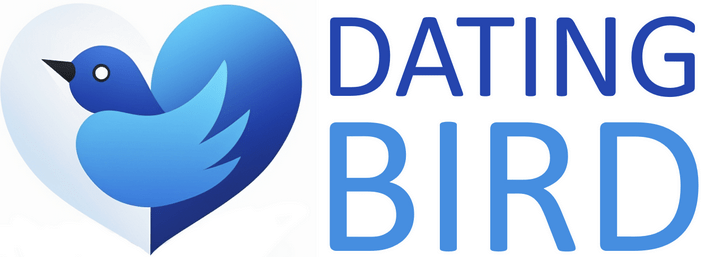Fake profiles in online dating are deceptive or fraudulent accounts created with the intention to mislead or scam other users. They are a widespread issue within the online dating sphere, particularly in Canada.


Understanding the Concept of Fake Profiles in Online Dating:
In the realm of online dating, fake profiles are a pervasive issue that can taint the user experience and undermine the pursuit of genuine connections. These profiles are often created by individuals or entities with ulterior motives, ranging from harmless pranks to more nefarious intentions such as financial fraud, identity theft, or catfishing. The occurrence of fake profiles is not confined to any specific platform or demographic, making it a universal problem within the online dating landscape.
"Fake profiles serve various purposes, often rooted in deception and manipulation."
They can be used to inflate the perceived number of active users on a dating platform, lure unsuspecting users into scams, or even to stalk or harass others. Despite efforts by dating platforms to combat this issue, the anonymity provided by the internet makes it a challenging task to completely eradicate fake profiles. Therefore, understanding the concept of fake profiles is crucial for users to navigate online dating platforms safely and effectively.
What are examples of Fake Profiles in Online Dating?
In the realm of online dating, fake profiles come in various forms, each with its unique characteristics. For instance, scammer profiles often depict attractive individuals and have convincing personal details, but their primary purpose is to trick users into sending money or revealing personal information. Another example is catfishing, where individuals create fictitious profiles to deceive others into emotional or romantic relationships under false pretenses. Similarly, bot profiles are automated accounts used to send spam messages or lure users to other websites. These profiles typically respond with pre-programmed messages and lack the human element in their interactions. Further, there are troll profiles, created with the sole aim of causing disruption or harm to others. While these are the most common types, the list is by no means exhaustive.
"From scammers and catfish to bots and trolls, the landscape of fake profiles in online dating is diverse, complex, and ever-evolving."
Understanding these examples is essential for recognizing and avoiding potential pitfalls in the online dating world.
What really matters in a Fake Profile? Or not?
In assessing the legitimacy of a profile, several factors come into play. The profile picture is often the first telltale sign. A fake profile may use a picture that seems too good to be true, often because it is a stock photo or a celebrity image. The profile information is another area to scrutinize. Fake profiles often have incomplete, inconsistent, or overly vague personal information. They also tend to avoid providing specific details that could be fact-checked. A sudden and unprovoked contact, especially with an overly enthusiastic or romantic message, is another common trait of fake profiles.
"From profile pictures to personal details, discerning the real from the fake in online dating profiles involves a careful examination of various elements."
Furthermore, activity patterns can also provide clues. Fake profiles often exhibit unusual activity patterns, such as sending a large number of messages in a short period or being online at odd hours. Lastly, communication style can be a giveaway. Fake profiles may use poor grammar, make odd word choices, or avoid answering direct questions.
- Profile Picture
- Profile Information
- Unprovoked Contact
- Activity Patterns
- Communication Style
These are some of the key areas to scrutinize when attempting to identify a fake profile in the context of online dating. The challenge lies in the fact that fake profiles can be sophisticated and not all follow the same pattern.
Why are Fake Profiles in Online Dating so important? Or not?
In the realm of online dating, the prevalence of fake profiles can be a double-edged sword. On one hand, these profiles can be seen as a significant concern due to their potential to deceive users and undermine the credibility of a dating platform. They can be used for nefarious purposes such as catfishing, fraud, or misinformation, leading to potentially harmful consequences for unsuspecting users.
On the other hand, fake profiles can also serve as a tool for platform operators to gauge user behavior and preferences, and improve their services accordingly. For instance, by observing how users interact with fake profiles, operators can gain insights into what types of profiles are most attractive to their user base, and tailor their algorithms to enhance user satisfaction and engagement.
"The role of fake profiles in online dating is a complex one, serving both as a challenge and a tool in the digital dating ecosystem."
However, the importance of fake profiles should not overshadow the primary purpose of online dating platforms - to facilitate genuine connections between users. Therefore, while recognizing the role of fake profiles, it is imperative for platform operators to continually strive towards minimizing their presence and impact.
- Role as deception tool
- Role as user behavior analysis tool
- Impact on platform credibility
- Relevance to user experience
- Necessity for minimizing presence and impact
What are the challenges with Fake Profiles in Online Dating?
Navigating the world of online dating, users often encounter the challenge of fake profiles. These counterfeit profiles pose a significant threat to the integrity and trustworthiness of online dating platforms. They are usually created with deceptive motives, ranging from scamming and phishing to data mining. Some users may also create fake profiles to explore the platform without revealing their true identity. This anonymity can lead to misuse, resulting in a negative user experience for authentic users seeking genuine connections.
"Fake profiles pose a significant threat to the integrity and trustworthiness of online dating platforms."
Moreover, identifying and removing fake profiles is a complex task. It requires sophisticated algorithms capable of distinguishing between genuine and fake accounts, which can be resource-intensive for the platform operators. Additionally, the presence of these profiles may discourage users from engaging on the platform, potentially leading to a decrease in user base and activity. Ultimately, the challenge of fake profiles in online dating is a multifaceted issue, requiring a balanced approach that respects user privacy while maintaining platform security and credibility.
- Threat to platform integrity
- Deceptive motives of fake profiles
- Negative impact on user experience
- The complexity of identifying and removing fake profiles
- Potential decrease in user base and activity.
What is the difference between a Fake Profile in Online Dating and a Social Media Profile?
In the realm of digital interactions, a clear distinction exists between fake profiles in online dating and social media profiles. Fake profiles in online dating are often intentionally deceptive, created with the purpose of misleading other users for various reasons such as financial gain or simply amusement. They may display false information regarding age, location, profession, or even use stolen photos to attract unsuspecting individuals. On the other hand, social media profiles, especially in the context of platforms popular among Canadians, such as Facebook or Instagram, are typically a representation of a person's real life, albeit often curated to highlight positive aspects. While deception can still occur, it's less common and usually not as extreme as in the world of online dating. It's crucial to remember that the authenticity of a profile, whether on a dating site or social media platform, is dependent on the honesty and integrity of the user behind it.
FAQ
Question: What is a Fake Profile in Online Dating?
Question: How can you identify a Fake Profile in Online Dating?
Question: Why are Fake Profiles created in Online Dating?
Question: What are the challenges associated with Fake Profiles in Online Dating?
Question: How does a Fake Profile in Online Dating differ from a Social Media Profile?
Question: What measures are taken by dating platforms to combat Fake Profiles?
Question: What can users do to protect themselves from Fake Profiles in Online Dating?
Related articles
Articles with related questions
Written by:
 Nathan
Nathan stands for quality content. He checks all articles critically and conscientiously.
Nathan is our team skeptic. He puts all tests and reports through their paces.In his opinion, if an article does not contain at least 500 words, it is not well researched.
Nathan
Nathan stands for quality content. He checks all articles critically and conscientiously.
Nathan is our team skeptic. He puts all tests and reports through their paces.In his opinion, if an article does not contain at least 500 words, it is not well researched.
